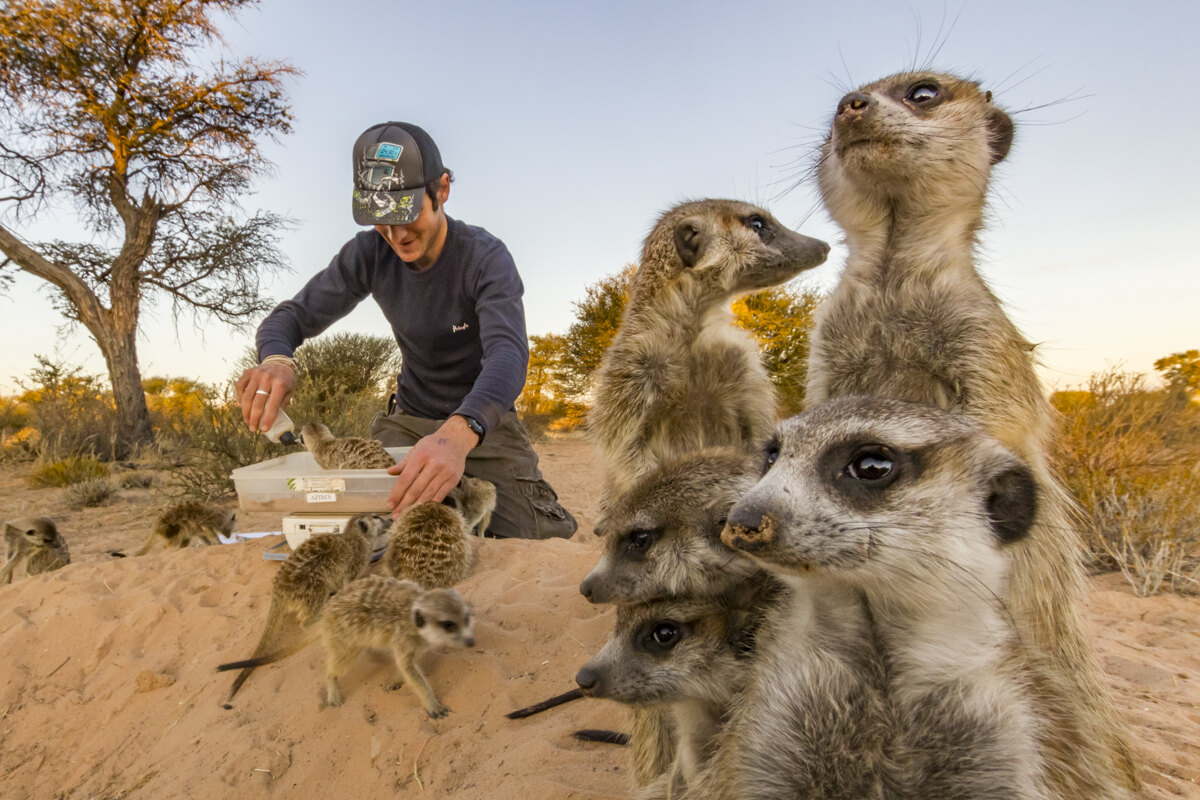
Wildlife conservationists play a crucial role in protecting and preserving the Earth’s diverse flora and fauna. These dedicated individuals work tirelessly to ensure the balance and sustainability of our planet’s ecosystems. From studying endangered species to developing strategies for habitat conservation, wildlife conservationists are at the forefront of efforts to prevent the loss of biodiversity.
In this article, we will delve into 15 astounding facts about wildlife conservationists and the incredible work they do. From their expertise in field research to their passion for environmental education, these individuals are instrumental in raising awareness and taking action to safeguard our natural heritage. Join us as we explore the fascinating world of wildlife conservationists and gain a deeper understanding of their important role in protecting our planet’s precious wildlife.
Key Takeaways:
- Wildlife conservationists are superheroes for animals and nature, working hard to protect endangered species and their habitats from harm and extinction.
- Wildlife conservationists face tough challenges, but their dedication and passion inspire others to join the mission of preserving our planet’s precious wildlife for a sustainable future.
Wildlife conservationists play a crucial role in protecting endangered species.
These dedicated individuals are at the forefront of efforts to preserve and restore habitats, implement conservation strategies, and raise awareness about the importance of biodiversity.
The work of wildlife conservationists extends beyond just saving animals.
They also focus on preserving ecosystems, promoting sustainable practices, and mitigating the impact of human activities on wildlife populations.
Wildlife conservationists come from diverse backgrounds.
They can be scientists conducting research, activists campaigning for policy changes, rangers patrolling protected areas, educators spreading knowledge, or volunteers working hands-on in the field.
The role of a wildlife conservationist can be physically demanding.
These dedicated individuals often work in challenging environments, enduring extreme weather conditions, rugged terrains, and even confrontations with poachers or dangerous animals.
Wildlife conservationists rely on data and research.
They collect and analyze data to better understand wildlife populations, track migration patterns, identify threats, and develop effective conservation strategies.
Wildlife conservationists collaborate with local communities.
They engage with indigenous communities, local governments, and stakeholders to foster sustainable practices, promote eco-tourism, and ensure the involvement of local people in conservation efforts.
Wildlife conservationists advocate for policy changes.
They work with governments, NGOs, and international organizations to shape policies that protect wildlife, enforce regulations, and address issues like habitat destruction, illegal wildlife trade, and climate change.
Technology plays a crucial role in wildlife conservation.
Conservationists utilize advanced tools such as drones, GPS tracking devices, camera traps, and satellite imagery to monitor and protect vulnerable species and their habitats.
Wildlife conservationists face significant challenges.
These include limited resources, political barriers, conflicts between human and wildlife interests, and ever-increasing pressures from population growth and unsustainable development.
Education and public awareness are essential aspects of wildlife conservation.
Conservationists engage in outreach activities, conduct workshops, and use social media platforms to educate and inspire individuals to take action for the preservation of wildlife.
Wildlife conservationists contribute to the local economy.
Through initiatives like eco-tourism, these efforts create jobs, generate income, and promote sustainable development that benefits both wildlife and local communities.
Wildlife conservationists work towards long-term solutions.
Their goal is not just temporary fixes, but implementing sustainable practices that ensure the protection and thriving of wildlife for future generations.
The efforts of wildlife conservationists have led to notable success stories.
From the recovery of species on the brink of extinction to the restoration of degraded habitats, their work has shown tangible results in preserving biodiversity.
Wildlife conservationists are dedicated to preserving cultural heritage.
They recognize the intrinsic value of wildlife in indigenous cultures and work towards protecting cultural practices, traditional knowledge, and the spiritual connection between humans and nature.
Wildlife conservationists inspire future generations.
Through their work, these passionate individuals inspire others to join the cause, fostering a collective effort to preserve our planet’s precious wildlife and ensure a sustainable future.
Conclusion
In conclusion, wildlife conservationists play a crucial role in protecting and preserving our planet’s incredible biodiversity. These individuals are passionate advocates for the conservation of wildlife and their habitats, working tirelessly to ensure a sustainable future for all species.Through their efforts, wildlife conservationists contribute to the understanding and conservation of endangered species, promote ecological balance, and address the various challenges posed by habitat loss, climate change, and illegal wildlife trade. They collaborate with scientists, policymakers, and local communities to implement effective conservation strategies and initiatives.Wildlife conservationists not only protect wildlife but also recognize the interconnectedness between nature and human well-being. By conserving habitats, these dedicated individuals also safeguard the ecosystem services that we rely on, including clean air and water, pollination, and climate regulation.By supporting and acknowledging the work of wildlife conservationists, we can all contribute to the preservation of our natural heritage and ensure a sustainable future for generations to come.
FAQs
1. What does a wildlife conservationist typically do?
A wildlife conservationist works to protect and conserve wildlife and their habitats. They may engage in activities such as conducting research, implementing conservation projects, advocating for policy changes, and educating the public.
2. How can I become a wildlife conservationist?
To become a wildlife conservationist, you typically need a degree in a related field such as biology, ecology, or environmental science. Gaining hands-on experience through internships, volunteering, or research opportunities is also valuable.
3. What are the biggest challenges faced by wildlife conservationists?
Some of the major challenges faced by wildlife conservationists include habitat loss, human-wildlife conflict, climate change, and illegal wildlife trade. These challenges require collaborative efforts and innovative solutions.
4. How can I support wildlife conservation efforts?
You can support wildlife conservation efforts by volunteering with organizations, donating to conservation programs, spreading awareness through social media, and making sustainable choices in your daily life to reduce your impact on the environment.
5. Are wildlife conservationists making a difference?
Yes, wildlife conservationists are making a significant difference. Their efforts have led to the recovery of endangered species, the establishment of protected areas, and the implementation of conservation policies worldwide.
6. Can I have a career in wildlife conservation if I don’t have a science background?
While a science background is beneficial, there are various roles in wildlife conservation that require skills in communication, policy, education, fundraising, and more. Non-science professionals can contribute to conservation efforts through these avenues.
Wildlife conservationists are true heroes, dedicating their lives to protecting endangered species and preserving our planet's biodiversity. Their tireless efforts inspire us all, much like the incredible work of Chandler Powell, Bindi Irwin, and Joan Embery. Explore the fascinating lives of these conservation champions and learn how their passion for wildlife has made a lasting impact on the world. From Chandler Powell's adventures alongside his wife Bindi Irwin to Joan Embery's extraordinary contributions to animal education, each story will leave you in awe of their unwavering commitment to making a difference.
Was this page helpful?
Our commitment to delivering trustworthy and engaging content is at the heart of what we do. Each fact on our site is contributed by real users like you, bringing a wealth of diverse insights and information. To ensure the highest standards of accuracy and reliability, our dedicated editors meticulously review each submission. This process guarantees that the facts we share are not only fascinating but also credible. Trust in our commitment to quality and authenticity as you explore and learn with us.


